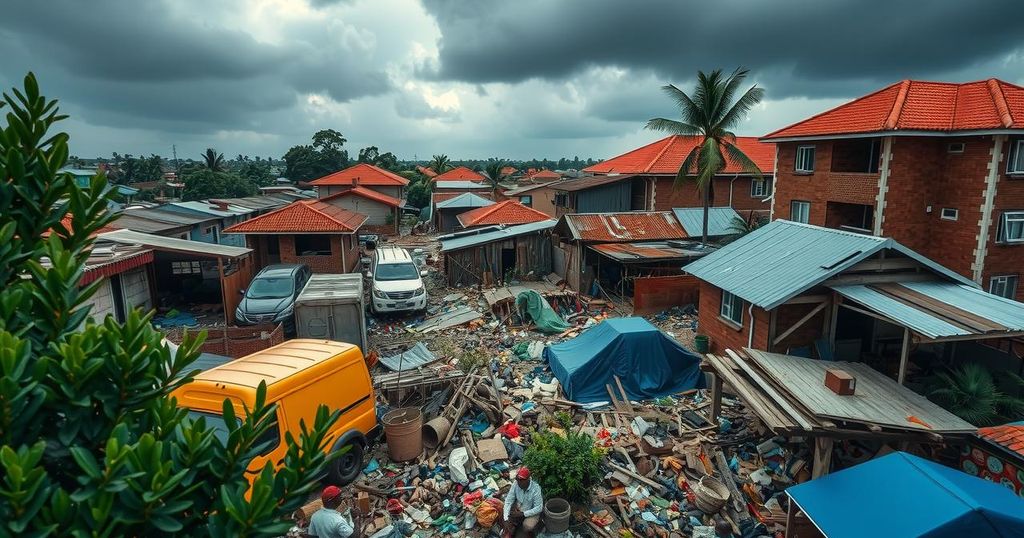Zimbabwe’s Recovery Journey After Cyclone Idai: A Story of Resilience and Hope

CARE has provided assistance to over 300,000 individuals affected by Cyclone Idai in Zimbabwe, helping with shelter, food, and education. Mwaedza, a survivor, experienced significant loss but is now rebuilding her life thanks to CARE’s shelter project, which has given her family hope and security. The ongoing need for support is highlighted to sustain recovery efforts amid climate change challenges.
In March 2019, Cyclone Idai devastated eastern Zimbabwe, resulting in substantial loss of life, displacement, and property damage. CARE International has since reached over 300,000 individuals affected by the cyclone, providing essential resources such as food, water, shelter, and educational support. Mwaedza, a 65-year-old survivor, describes the harrowing experience of losing her home and the challenges she faced while seeking refuge with her family.
After being displaced, she struggled to secure a safe living environment for her and her children, often relying on temporary jobs for survival. However, CARE’s Shelter Preparedness and Response project, funded by the Volant Charitable Trust, has transformed her situation. She received a newly constructed home, significantly improving her living conditions and providing her family with safety from future storms.
Mwaedza reflects on the new chapter in her life, stating how her new home symbolizes hope and a renewed perspective on resilience and survival. While she had endured multiple hardships, she now looks forward to a brighter future for her family, emphasizing that proper shelter is crucial for rebuilding lives after disasters. The ongoing need for increased support and funding remains critical to assist others similarly affected by climate change and natural disasters.
Cyclone Idai struck Zimbabwe in March 2019, causing widespread destruction and suffering, ultimately leading to over 340 fatalities and displacing nearly 60,000 individuals. The cyclone inflicted severe damage on infrastructure, housing, and agricultural resources, amounting to an estimated $622 million in direct impacts. Recovery efforts are projected to require at least $1.1 billion to rebuild and provide assistance to affected communities. CARE International has played a critical role in these efforts, particularly focused on vulnerable populations who faced the brunt of the cyclone’s devastation.
The story of Mwaedza showcases not only the tragic consequences of Cyclone Idai but also the remarkable resilience and hope exhibited by those affected. While challenges persist, the assistance provided by organizations like CARE serves as a vital lifeline. Mwaedza’s new home symbolizes stability and the potential for recovery. Moving forward, it is essential for continued support and funding to facilitate disaster resilience for those still grappling with the aftermath of such calamities.
Original Source: www.care.org








